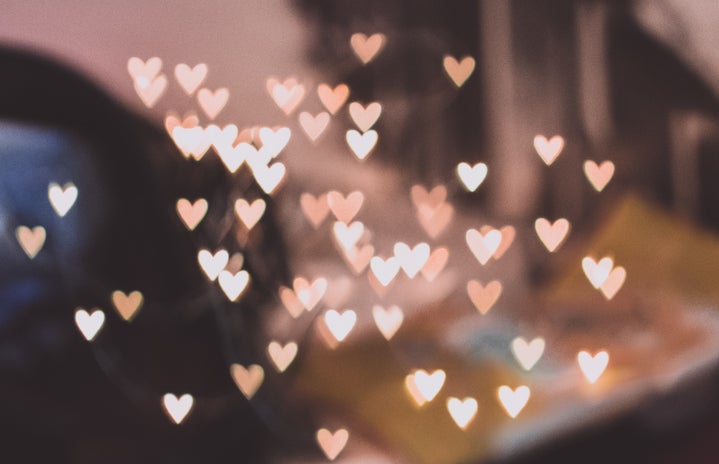Dating sites and apps have gotten increasingly popular among college students like us over the last few years. Maybe you’ve found yourself creating an OkCupid account or taking Tinder more seriously when you had originally got the app just for fun. But how safe are these platforms? After all, you never really know whom you’re talking to. Read on for what to look out for and how to stay safe!
What are the risks?
You’ve been told to be careful with online dating, but do you know why? Like with anything you do on the Internet, “there is risk of identity theft, financial fraud, trolling/internet stalking, catfishing and general safety issues when meeting someone you don’t know,” says Gina Stewart, an online dating expert.
We asked Stewart and Tony Neate, CEO of Get Safe Online, for their tips for enjoying dating sites while making sure you stay safe.
How can you protect yourself?
1. Choose the site wisely
If you’ve never used a dating site or app before, you might not know which one to pick. According to Stewart, you should always “stick to mainstream websites and be cognizant that anyone can join most any site and pose as any person.”
One way to tell if a website is trustworthy is the extent to which it lets you protect your information. “Use reputable dating sites that offer the ability to email prospective dates using a service that conceals both parties’ true email addresses,” Neate says.
Stewart recommends Match.com, OkCupid, Tinder, JDate and Christian Mingle, which are all owned by reputable, large companies. Among independent sites, Stewart cites Hinge, Coffee Meets Bagel, HowAboutWe, eHarmony, Zoosk and PlentyOfFish as being “large enough to have good policies in place.”
Although these larger websites don’t necessarily have more trustworthy users, you can at least rely on the sites to keep your information safe. “Any time you’re giving out personal information or credit card information, you want to be able to trust the site/company,” Stewart says. “Does that information stay with that company, or do they sell or lease it out? Believe it or not, some sites sell your profile or information. Bigger sites don’t have to, but if they do, you know you can find information on how to contact them to complain or have some recourse.”
2. Disclose the least amount of information possible
You never know who’s reading your profile, so you should always be mindful of how much information you are disclosing. “Don’t include any personal information, [such as] your last name, what dorm you live in, what sorority you are a part of,” Stewart says. “All of these things can be used to track and identify you and even your whereabouts.” Phone numbers are also a big no-no until you feel comfortable enough to meet up with someone.
This also applies to the name you choose to go by. “Pick a username that does not include any personal information,” Neate says. For example, don’t use anything along the lines of “jane_tucson” or “mary_90210.”
Of course, it can be difficult to tell whether someone is potentially dangerous or not. So when can you trust this person enough to actually go out with him or her? For Stewart, the answer is “if they are consistent, taking time to get to know you, and so far honest from what you can tell.”
However, you can meet up while still guarding your information. “You don’t have to give your direct number,” Stewart says. “Get a Google phone number. And don’t become Facebook friends right away. Facebook gives out a ton of personal information about you that can be used against you in a number of ways.”
Additionally, you can get to know the person without going into details about yourself. “Don’t mention specific places and times of places you go to,” Stewart says. “Guard any personal information that could be used to track down your location or steal your identity until you really know someone.” For instance, your match does not need to know that you go to X gym every Friday. If you think you’re being too careful, you’re probably doing it right.
3. Watch out for red flags
Although it takes a while to know that you can trust someone, there are some sure signs that you can’t.
“If the person starts asking you for personal details too soon, being pushy about where he or she wants to meet up, or seeming too good to be true, do your homework,” Stewart says. “Do a Google image search to see if his or her profile is using pictures pulled from somewhere or someone other than him or herself.”
This is the first step, but if you are going to meet up with this person, it’s sometimes a good idea to dig a little deeper (see tip number five).
4. Don’t be afraid to report someone
If the person you’re talking to starts to make you feel uncomfortable, don’t try to be polite. “Some sites let you block or report aggressive or inappropriate users,” Stewart says. “Use it.”
Telling someone to leave you alone or simply not responding will most likely not get the job done, especially if you are in fact dealing with a stalker.
5. Do a quick background search
Playing detective might feel excessive, but you’re always better safe than sorry. Nina*, a senior at Duke University, took all the precautions she could before meeting up with people from dating sites.
“I knew that I needed to be particularly careful when meeting up with these guys,” Nina says. “The day before, I Googled the guy [I was meeting] to see if anything (mug shots, arrest records) would come up, and I spent about $3 on Spokeo to do a quick background check to verify his name, address and phone number. I wanted to be sure he was who he said he was.”
Spokeo is a people search engine that combines information from various online sources, and there are many other platforms like it. “There are about 10,001 background search companies out there,” Stewart says. “Googling background searches will give you a wealth of options. There are even some specifically for online dating, like LuvFax.”
Stewart encourages you to do a little research beforehand, as long as you don’t tell your date about it!
6. Meet in a safe place
Meeting in a public place seems intuitive – if there are other people around, there will be someone to help you out if need be.
“Meet in public and do not have them pick you up,” Stewart says. Additionally, it is “best to not participate in any activity where you’re not able to leave,” she says. So stick to coffee shops, restaurants and movie theaters – at least for the first few dates.
Annie*, a sophomore at the University of California at Los Angeles, has been on a handful of dates with people she met on Tinder. “I always agreed to meet someone at a restaurant in [my college town] so I could walk myself there and back, which is a lot safer than going to a stranger’s house,” Annie says. “You never know what kind of guy is using a dating app.”
If you choose to meet up in a bar and you are of legal drinking age, make sure you are in control. “Guard your drink and don’t drink more than one drink if you expect to drive,” Stewart says.
Another safe option could be to meet this person at your apartment when your roommates are home. That’s what Amanda*, a senior at the University of California at Los Angeles, decided to do. “The first time I met up with someone from Tinder, I had him meet me at my apartment for some wine, music and conversation,” Amanda says. “I’m a fairly trusting person, but I still chose a night when my male roommates were home and many of their friends were over. This made me feel much more comfortable about having a stranger over. I kept my bedroom door open so that the guys could hear me just in case I realized I was uncomfortable with the guy.”
7. Let your friends know your plans
Always tell some of your best friends, roommates or sorority sisters what you are doing and be as specific as possible. Tell them “all the details, including where you are going, at what time, when you will be back and all the details of the person you are going with,” Stewart says. “The more details the better, in case anything should happen. All of this sounds scary, but really it’s very easy to do.”
Nina met up with multiple guys from dating sites and was always very cautious. “Before leaving to meet with the guys, I told two of my closest friends where I was going and who I was meeting so that they’d know what was up if anything happened,” Nina says. “I made sure I told friends who could tell if something was wrong when I called or who I knew had the resources to contact someone if anything went wrong.”
Although you should tell as many people as possible what you’re doing, try to pick a specific person to check up on you after the date so that it’s his or her responsibility alone.
Another great thing you can do for added safety is use a tracking app on your phone. Nina downloaded Glympse, which tracks your location in real time. “You can give access to anyone you like, and when they log into the app, they can see the GPS from your phone and know your exact location,” Nina says. This is especially useful if you end up going somewhere other than where you’d planned.
Amanda made sure to tell multiple people what her plans were, but also made the most of her smartphone. “Having apps like Uber on my phone made me feel safer about being able to leave on my own and not rely on the guy to drive me home,” Amanda says.
8. Set up a safe call
This step is optional but could make a huge difference. “My friends and I agreed on a time for them to call me during the meet-up,” Nina says. “We had set phrases that I would say to indicate if things were going well (‘Yup, the food is really good’) or if I needed help getting out of the situation (‘Yeah, the coffee’s not too great’). If I said the phrase indicating things were bad, they would call back and give me a reason to leave, or they would come pick me up.”
If you don’t feel comfortable using code words, “make an agreement to call your friends when you get back,” Stewart says. With that in mind, be sure to call, not text, so that your friends can hear your voice and know you are truly safe and sound.
Although you may have heard plenty of horror stories about dating sites, that doesn’t mean they aren’t great places to meet people. “The dates went fine, I had a great time and I got home safe and sound,” Nina says. “But because I met them online, it’s like the danger factor was heightened.”
Nina is right to have taken extra precautions, because those dates could have gone completely differently. However, Tinder worked out for Annie, too. “I actually did not ever feel unsafe, though I thought I would because dating apps can be uncomfortable and risky,” she says.
If you’re as careful as possible, you’ll be able to enjoy going out with people without worrying about anything going wrong. So have fun and be safe, collegiettes!
*Names have been changed.

